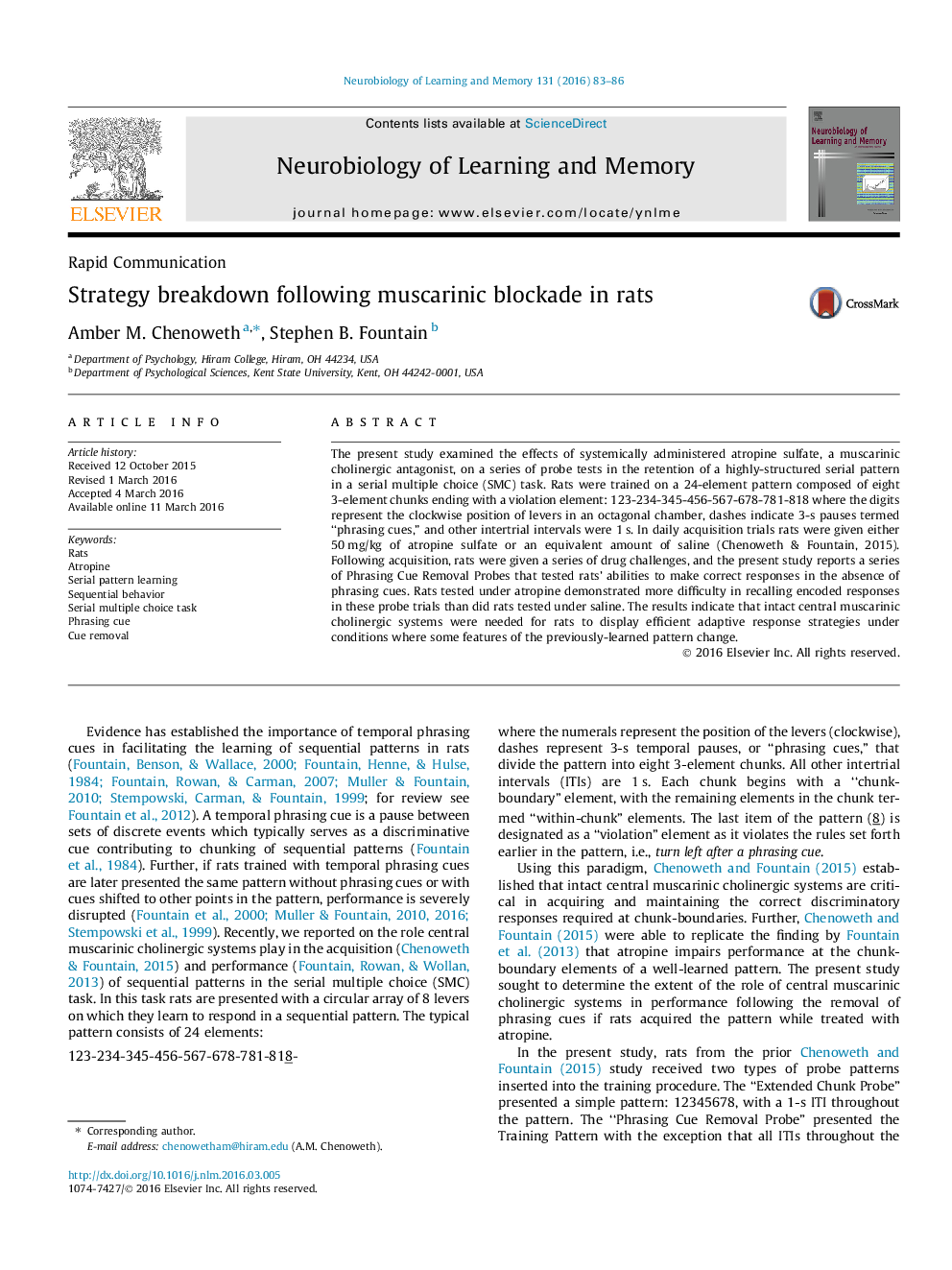| Article ID | Journal | Published Year | Pages | File Type |
|---|---|---|---|---|
| 7299211 | Neurobiology of Learning and Memory | 2016 | 4 Pages |
Abstract
The present study examined the effects of systemically administered atropine sulfate, a muscarinic cholinergic antagonist, on a series of probe tests in the retention of a highly-structured serial pattern in a serial multiple choice (SMC) task. Rats were trained on a 24-element pattern composed of eight 3-element chunks ending with a violation element: 123-234-345-456-567-678-781-818 where the digits represent the clockwise position of levers in an octagonal chamber, dashes indicate 3-s pauses termed “phrasing cues,” and other intertrial intervals were 1Â s. In daily acquisition trials rats were given either 50Â mg/kg of atropine sulfate or an equivalent amount of saline (Chenoweth & Fountain, 2015). Following acquisition, rats were given a series of drug challenges, and the present study reports a series of Phrasing Cue Removal Probes that tested rats' abilities to make correct responses in the absence of phrasing cues. Rats tested under atropine demonstrated more difficulty in recalling encoded responses in these probe trials than did rats tested under saline. The results indicate that intact central muscarinic cholinergic systems were needed for rats to display efficient adaptive response strategies under conditions where some features of the previously-learned pattern change.
Related Topics
Life Sciences
Neuroscience
Behavioral Neuroscience
Authors
Amber M. Chenoweth, Stephen B. Fountain,
